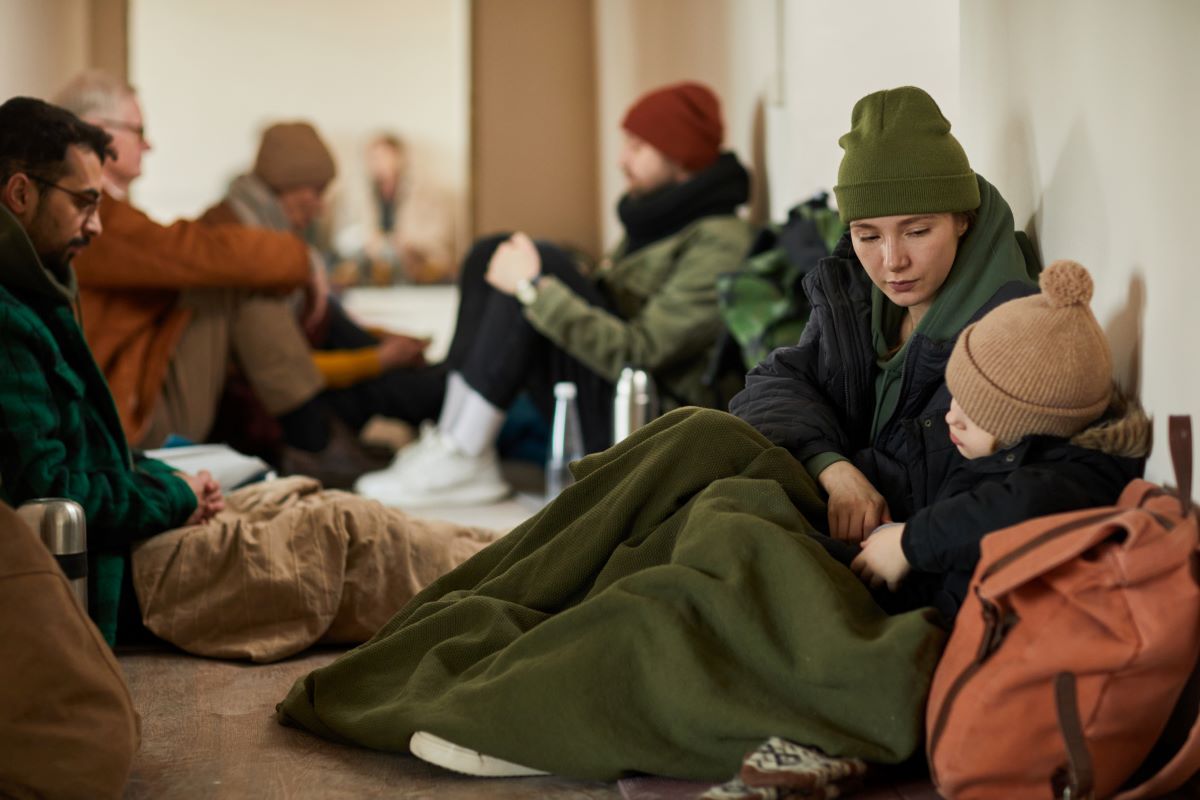In January 2023, volunteers for the Portland segment of the US Department of Housing and Urban Development identified approximately 18,000 individuals visibly homeless on a single night in Oregon. That number, a drastic undercount at best, reflects a massive statewide spike in unhoused status.
Further analysis revealed that in Portland and surrounding regions, unsheltered homelessness went up an astonishing 50%, propelling the state of Oregon to a shameful record-holding title – that of the fourth-highest rate of unsheltered homelessness nationwide.
In addition to hosting one of the highest rates of unsheltered homelessness in the country, something else adds to the social stain and stigma. Oregon also has the highest rates of unsheltered homelessness for families with children.
Anytime children sleep on street corners, put their school uniforms on in the backs of their family’s minivans, and barely scrape by on the socio-economic ladder, something must be done. So, in late January of this year, Oregon Governor Christine “Tina” Kotek declared a state of emergency on homelessness.
“This is a man-made disaster,” the Governor told reporters.
During that interview, she expressed intentions to approach homelessness like any other natural disaster by “setting up an incident command structure and emergency management structure.”
With a clear end goal in mind, the determined Governor set out to ramp up innovative approaches to homelessness, a feat that is proving more difficult than she initially expected.
In April, Governor Kotek Signed a $200 Million Package to Tackle Housing and Other Issues Related to Homelessness
In April 2023, Gov. Kotek announced an exorbitant budget to address the local homeless emergency.
While she initially estimated a need for $130 million in funding, that price quickly got bumped to $200 million in the following months. The $200 million package quickly received bipartisan support and was signed into law through the state legislature.
While the package passed expeditiously, only $30 million of the funding was made immediately available, with plans to allocate the remaining money in mid-summer of 2023.
According to Oregon Live, the initial $30 million was ushered into homeless prevention programs such as rental assistance. The rest of the funding is intended to provide the following:
- Construction of more affordable housing
- Shelter expansions
- Renter protections
- Rental assistance
- Aid for homeless unaccompanied youth
- Community support and more
Governor Kotek discussed the package with a tone of optimism back in April. However, that tune is changing as the aid begins to roll in, and she finds the social services team ill-prepared to follow through on the necessary tasks.
As Plans Developed, New Obstacles Mounted in the Form of Disorganization
Shortly after the massive homeless package passed, Gov. Kotek met with officials representing Multnomah County and the City of Portland. She claims their plans on how to use the newly available funding are muddled and unclear despite several collaborative efforts and a fully fleshed-out call to action.
In a candid interview with the Portland Business Journal, city Mayor Ted Wheeler pushed back against these accusations. He said that Portland’s response to homelessness is currently “better than it has ever been.”
That’s a sobering statement that offers little hope given the city’s notorious reputation for unsheltered and child homelessness. Will at-risk families face an uncertain future even with hundreds of millions of dollars in funding allocated to their cause? Perhaps only time will tell.
The current plans for the first installment of emergency aid are expected to be used in the following ways:
- $18.2 million to rehouse homeless residents and construct hundreds more shelter beds in Gresham, Portland, and Multnomah County.
- $15.5 million was designated to similar rehousing efforts in Lane County, Springfield, and Eugene.
- $10.4 million was set to fund rehousing and shelter bed construction strategies for Polk, Salem, and Marion Counties.
- $8 million was allocated to rehousing homeless residents and constructing shelter beds in Washington County and surrounding regions.
- Another $4.4 million was designated toward rehousing hundreds of homeless families and individuals in Clackamas County.
Mismanagement of Funding Causes Missed Opportunities to End or Seriously Reduce Homelessness
It should be duly noted that current monies are allocated toward programs that house people rather than criminalizing them. Experts concur that permanent, supportive housing is the most cost-effective solution to homelessness across the board.
When homeless assistance is mismanaged, the funding is often funneled into local law enforcement agencies, where homelessness is perpetuated indefinitely. This creates a cycle of homelessness and imprisonment, a revolving door leading to the same alleyway of hopelessness.
Demand Your Legislators Ensure Homeless Aid is Used Promptly and Effectively in Oregon and Across the US
Child homelessness is rampant in Oregon and rising all across the nation.
Are you appalled at the thought of children being separated from their parents, pets, and physical possessions? Does a child’s cries in the dark haunt you? Do you find the idea of a five-year-old hunkering down in a tent with their teddy bear tonight unbearable?
If your answer is yes, contact your local legislators immediately and urge them to distribute aid promptly and effectively in Oregon and nationwide.













